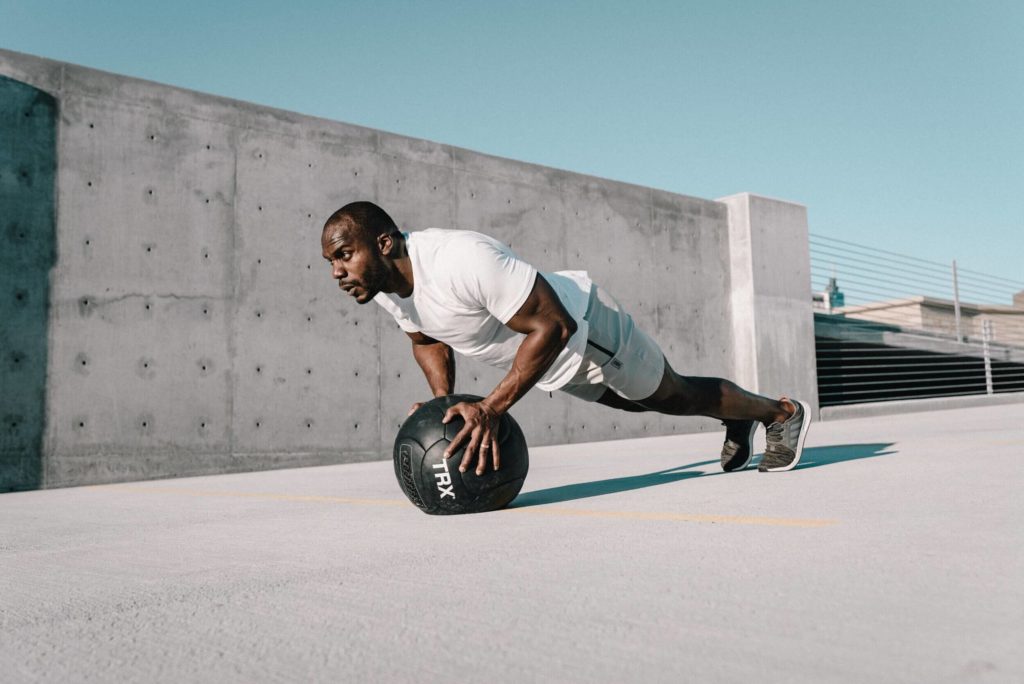When you are working out every week for a considerable period, you tend to experience hitting a wall at some point. Your routine which helped you get to where you want to be and your nutrition among other factors doesn’t work anymore. It doesn’t give you the results that you were previously getting, that’s when you know that you have hit a plateau.
The stalled results may have been caused by a variety of factors, it generally means that your body has found a way to adapt to the physical stimulus you were giving it. To experience continuous progress, it is essential to expand the physical and mental limits that you have set for yourself.
Traditionally, plateaus are associated with Strength Training. It is largely because the body’s baseline has become stagnant, which means that your body just doesn’t feel those 10 reps of 5 kg dumbbell curls as exerting anymore. Plateaus can happen with other forms of exercises such as HIIT. Sometimes, it might not even be your exercise routine. It could be that your exercise regimen is perfectly good, but you might be doing something else incorrectly.
Ways to go beyond the plateau
Let’s understand the factors that are contributing to your plateau and how you can go beyond them.

Exercise
You would be surprised how quickly a group of muscles can adapt to an exercise routine. Doing the same exercises, week in and week out with the same amount of repetitions will stall your progress. Even a HIIT workout, which is known for its varying number of movements, can still hit a wall. While varying the intensity of an exercise can help overcome a plateau, varying your exercise routine is just as important.
A 2014 study conducted by the University of Tampa reported that varied courses of exercises over 12weeks were far more effective in building muscle than maintaining the same exercise routine throughout. According to the research, varied exercises involving the quadriceps translated to increases of between 11.6% to 12.2% in muscle mass. Varying your exercise regimen by incorporating cross-training, HIIT and strength training into your workout plan can push your body in whole new ways.
If you always use equipment to perform exercises, try using free weights instead. If you perform bench presses for the chest, try implementing pushups. Changing things up can keep your program invigorating by using an entirely different set of muscles.
If you are looking to vary your exercises and add depth to your arsenal, we have the perfect Ultrahuman workout for you. Kris Gethin, the internationally renowned celebrity trainer, has a full-body strength and endurance workout that mixes 3 different styles – EMOM, TABATA and Cardio to keep all your cylinders firing.

Rest Days
Most of us who like to work out every day don’t understand that going hard all the time can be detrimental to the results we seek. The time needed for your body to relax and rejuvenate is equally, if not more, important than the time spent working out.
If you are not scheduling adequate rest days, you are not only doing your body some unnecessary damage, but you’re also more likely to hit a plateau. If you’re working out, but not using your body to its maximum potential because of inadequate rest days, then you’re never going to progress or see results.
According to medicalnewstoday, you should take a rest day every 7–10 days or as needed to help the body and mind recover. A rest day can be an active day that incorporates gentle exercises such as walking or yoga. Alternatively, you may opt for a full day of relaxation.

Lifestyle
Your life outside of the gym is important, but it’s vital to keep a healthy balance. Although you may perform your best in the gym five times a week and push yourself beyond your limit, one way to completely derail the progress is lifestyle-related habits such as binge drinking during the weekend. A few too many shots may undo too much of your hard work.
For a start, alcohol is considered an ergogenic substance, meaning it impairs athletic performance. According to PubMed, the relationship between sport, exercise and alcohol consumption is clear and long-standing. Alcohol continues to be the most frequently consumed drug among athletes and habitual exercisers and alcohol-related problems appear to be more common in these individuals. Alcohol use is directly linked to the rate of injury sustained in sports events and appears to evoke detrimental effects on exercise performance capacity.
This doesn’t mean that your social life needs to take a toll and you avoid alcohol completely. Identifying that this could be one of the reasons for your plateau, implementing the right amount of self-control and not going overly excessive will develop the results you want.

Nutrition
One sure way of hitting your plateau is not eating right. This means that either you’re not consuming a balanced diet with the right amount of carbohydrates to fuel your workout, the right amount of protein to help you repair and grow your muscle or eating junk.
To build or maintain lean muscle mass, you must fuel your body with protein to create an anabolic foundation. Eating high-quality protein with every meal, along with healthy portions of veggies provides the necessary fuel to maintain and build muscle while even burning fat when paired with the right exercise routine.
Deny processed foods and opt for nutrient-dense whole foods. It’s better to understand whether what you eat comes naturally like legumes, lean meat, eggs, lentils, vegetables or has gone through chemical processes such as bread and desserts.
Take a close look at all the midday or late-night snacks you may be consuming. It’s also important to be mindful of raw nuts, avocado and almond butter. While they are healthy options, you still need to keep an eye on your portion sizes because of the higher calories that they contain.

Sleep
Another way to plateau is not sleeping enough. Your time in bed is as necessary as your time in the gym. According to a study done by the University of Chicago Medicine, sleep is extremely important in energy metabolism. Researchers studied 14 test subjects with similar diets and differing sleep amounts over four days, split into two groups: Poor sleep (4.5 hours a night) and Regular sleep (8.5 hours a night). Seven out of seven sleep-deprived subjects showed insulin resistance, while the rested subjects didn’t. Their bodies were relying on lipids that were pumping out more insulin since their bodies weren’t responding to the insulin regularly. Excess insulin is harmful because it ends up storing fat in all the wrong places. The insulin imbalance caused by lack of sleep has the potential to cause serious weight gain, which can lead to obesity and possibly diabetes.
Getting adequate 8 hours of sleep provides insulin balance, helps your body recover and gives you a better mood to break your plateau.
Conclusion
Many variables contribute to your plateau such as regressive workouts, poor sleep, poor nutrition and an unhealthy lifestyle. Reflecting and identifying which of these elements are the primary factors to your plateau would put you in a better position to decide what works for you.
It’s important to look at the right balance of good nutrition, 8 hours of adequate sleep, varying and challenging exercises with a balanced healthy lifestyle for overall health, giving you the ammunition to attack that plateau every day.








